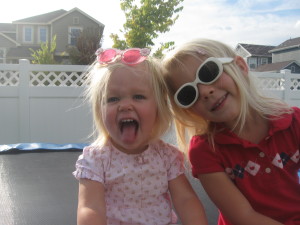As I sat with a store manager discussing how to ensure a team is executing customer experience expectations, she offered up at a rather nondescript comment “I just want my team to have fun”. Wait. Fun. What do you mean by fun? What is “fun”?
This is not a trick or me trying to be cheeky. How do you ask a team to fulfill a host of operational, procedural, sales and service behaviors and then add to the list “have fun”? Is that even a reasonable expectation? Can that be measured or fulfilled by the team member like some task on a compliance checklist?
First off, I understand the definition of fun…intellectually. Webster’s; a feeling of being amused or entertained. Second, I also know that the definition is relative to the individual (what I think is fun and so on). Third, is that the expectation? Was that what she was saying she really wanted? For the team to execute a cultural experience for the customer through specific behaviors including having fun?
Yes.
In her mind, when the partner (a.k.a. team member) has a combination of belief and competency, the personality is free to express itself within the prescribed goal. To simply enjoy doing their job, because they know precisely what, why, how and to what extent it needs to be done.
Here is the thing, I want my team member to say hello, ask questions and listen to the customer. They need to present a multiple item-total solution, ask for and reinforce the sale. They then must thank the customer for coming in and follow up in some way. These behaviors represent the prescribed goal of delivering a customer experience.
If I can provide clarity and purpose with the abilities to deliver those behaviors, something happens. If I can provide education, support and boundaries with those same abilities, a certain amount of freedom of expression is born. Fun can and most likely will be an organic by-product of that effort.
So I need to change my question. From “what is fun?” to “what creates a fun environment?’
My wife worked as an intern at Disney during her university days. She said it was the best job ever. Specifically, it was the hardest job and the most fun she ever had. To this day, she still feels hard and fun are not mutually exclusive of one another. They (Disney) instilled in her a lasting understanding of purpose along with exceptional training. This allowed her personality naturally to come into play.
Again, establishing a clarity (belief) and providing the wherewithal to achieve it (competency). And in doing so, a mutual trust is formed. Personal energies are allowed to surface. Personalities in play. Fun is the byproduct.
Let’s be real, there are more things that stimulate fun. Team building, engaging the community and even crazy shirt day. They may only have a quick impact. And that may be your goal. I want something longer term, something sustainable. I want to stick to the core and target belief and competency with a huge dose of personality.
Toward the end of our chat, the manager said something that lingered… “They (partners) usually start for one thing and stay for another”. She eluded to the many, many times partners take the job because of pay, benefits, flexibility or opportunity and then end up staying because of something the company stands for or treats as a core value. I asked “Like what?” She said “We like to have fun.”
The best use of money as a motivator is to pay people enough to take the issue of money off the table: Pay people enough so that they’re not thinking about money and they’re thinking about the work. Once you do that, it turns out there are three factors that the science shows lead to better performance, not to mention personal satisfaction: autonomy, mastery, and purpose.
Dan Pink
